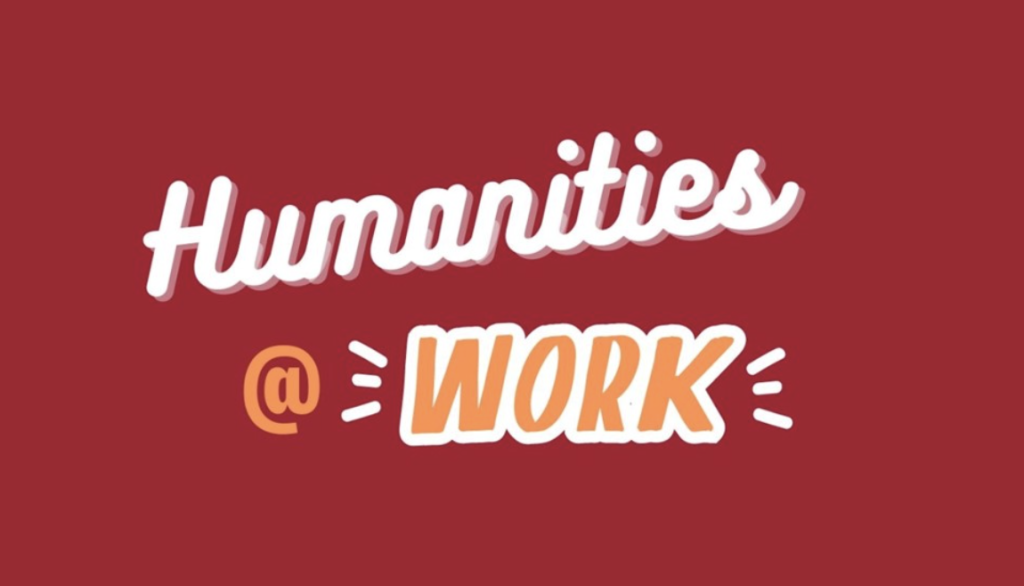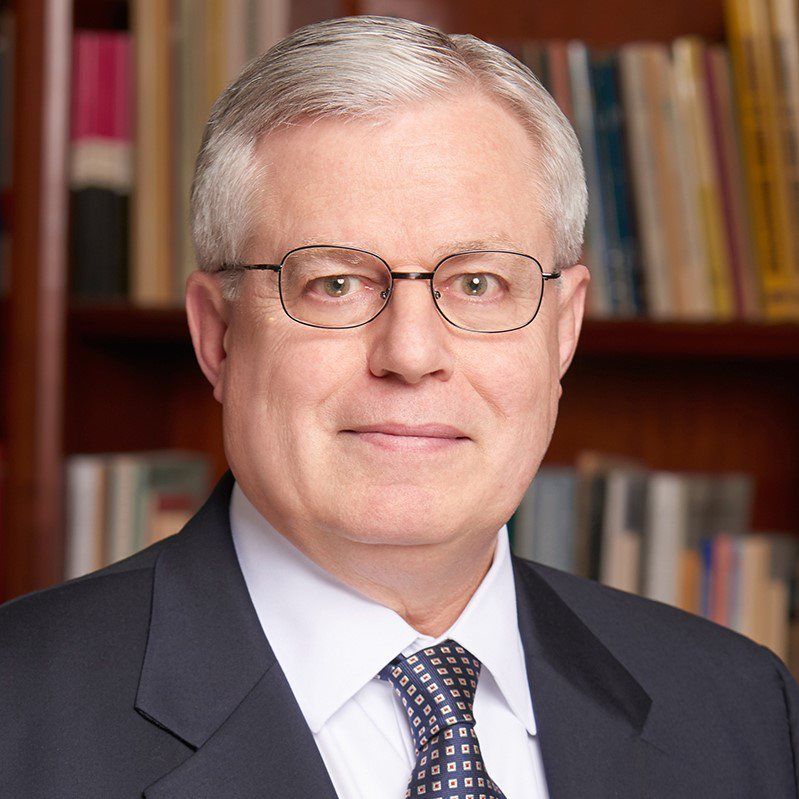
The Mignone Center for Career Success recently hosted the kick-off session of the Humanities@Work (H@W) series. The series showcases the rich and varied career pathways available to advanced degree candidates in the Humanities. The series will feature guest speakers from different sectors, who will share their career journeys as well as their advice on how to enter their sector.
Our first event featured Dr. Richard Ekman (AB ’66, AM ’67, PhD ’72, History of American Civilization). Richard is president emeritus of the Council of Independent Colleges and past chair of the Graduate School Alumni Association Council. He has served in leadership positions at the Andrew W. Mellon Foundation, Atlantic Philanthropies, and the National Endowment for the Humanities. In his talk he discussed the landscape of philanthropic foundations, opportunities for satisfying work in that sector, and advice for effective presentation of your skills and experience when seeking a position in this field. In case you missed it, here are some of the major takeaways from the talk.
- The Size and Shape of Foundations
- Most foundations are endowed and make grants in an amount that corresponds to a small percentage of the endowment’s investment earnings. Some foundations receive an infusion of funds from donors every year and award grant at that level.
- A foundation is a tax-advantaged way for wealthy people and organizations to participate in charitable giving.
- Usually, the founder’s vision/passion for a cause determines the mission of the foundation.
- There are 100,000+ foundations, but about 200 “serious” ones (with a big sum of money, a paid staff, etc.)
- There are different kinds of foundations – family foundations, corporate foundations (like the UPS Foundation or the Walmart Foundation).
- Working for a Foundation
- The different roles you might see: program director, program officer, program manager, program associate, and program assistant. For people with a PhD, you’ll mostly be interested in/be qualified for the first three roles.
- People will often apply to Foundations for money. One role you might have is meeting with applicants and talking with them about their ideas. This includes helping them develop their proposals, helping them navigate the reviewer process. In working with different applicants, you would then make a case to the Board why you think these ideas are/are not worth funding.
- You might also work with calls and emails from rejected applicants, passing on reviewer’s comments and helping them understand where they might be able to improve their proposals.
- You might read and share the annual progress reports written by awardees, helping other members of the Foundation team to understand how the Foundation’s resources are being spent.
- Other roles in a foundation might include those having to do with press and communication or managing the investment portfolio.
- Tips for Getting a Job at a Foundation:
- First, ask yourself: Are you comfortable with the mission of the foundation?
- It might be a lot broader than what you have specialized in through your PhD research, but that does not mean you are not qualified to work in the foundation!
- Hone the vocabulary you use to describe your skillsets.
- Writing, persuading, communicating with reviewers and with the public – these are all important skills in foundation work.
- How can you describe your skills in a way that differentiates you from BA and MA degree holders? The answer here is not just that you can “do research better.” You want to articulate your PhD skills to highlight that you can communicate, think critically, manage stakeholder relations, etc.
- Get informed about how foundation jobs are posted/filled; unlike academic positions, for which the hiring timeline can be quite lengthy, foundation positions get posted and filled quickly.
- You can follow the Chronicle of Philanthropy for current job postings.
- But the most effective way to find opportunities is to connect with people. Conduct informational interviews with people working in foundations. Research the foundations you are interested in, and see if their Board of Directors have any Harvard alumni on them – you can reach out to them for a chat.
- Once you’ve had a conversation with them, stay in touch! Don’t let them forget about you. That way, they can remember you when they see an opportunity that might be a good fit for you.
- In an informational interview, keep your questions general, and demonstrate curiosity about the career path of the person you’re talking to. Don’t say you’re looking for a job at the foundation! Instead, you can say you’re looking for guidance in understanding the world of foundations and are looking to move into that sector.
- Dr. Ekman’s take-aways from his career:
- Careers aren’t made up of “logical progressions,” from one opportunity to another. They sometimes require leaps in different, unfamiliar directions.
- People are adaptable. Be open to new experiences as they present themselves – you never know where an opportunity might come from!
- Jobs at foundations do not require the level of specialization that your PhD does. So even through your PhD, try to acquire a range of experiences – these experiences could become relevant to your career in surprising ways!
- The paths to the future are winding. There might still be a view in academia that if you stray from the beaten path, you are “tainted” – but this view is changing. Don’t let it limit you.
- You have support at Harvard! The Mignone Center for Career Success and Dean Emma Dench and her leadership team are committed to supporting you and helping you navigate whichever range of career pathways you are interested in.




